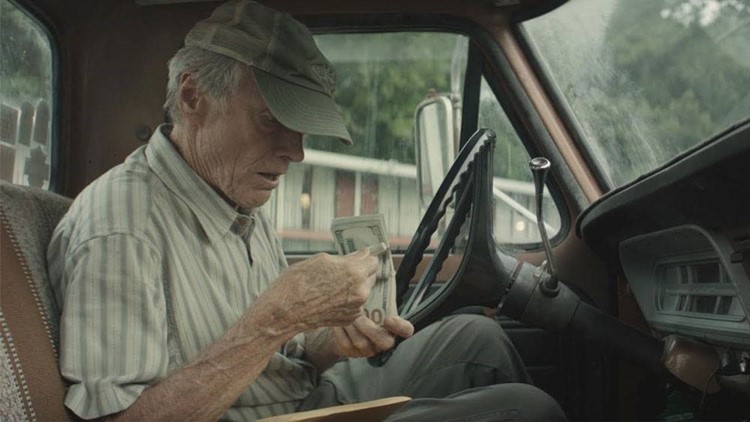Earl Stone (Clint Eastwood) is a man apart; an old lion cut off from the modern world of digital technology who is running out of time. A working man who put family second, and wants to make up for lost time while enjoying his final years.
When the horticulturalist (avid gardener!) sees his business die down and the land he works on edge closer to foreclosure, Stone becomes a driver for a group of individuals he will come to find out are part of the Mexican Cartel. Welcome to The Mule, a film inspired by Leo Sharp's (Earl here) true story as the man the Sinoloa Cartel would know as "El Tata."
Here's the thing. Clint Eastwood has still got it, ladies and gents. The actor/director's latest feature proves that the man still has something to say and a way to say it, both behind and in front of the camera. Stone is a tailor-made role for the grizzled pro who has been acting since 1955 yet has only claimed ownership to 72 film roles. There are shades of Clint in Stone, and the uncanny resemblances in their pasts drive The Mule forward and make it a soulful, if imperfect, journey at the movies.
When DEA agent Colin Bates (Bradley Cooper) gets a whiff of Cartel action, he is set up on a collision course with Earl. I'll go ahead and spoil the fun and admit that Cooper and Eastwood share a pair of great scenes together, trading shots as two men who aren't cut out for the normal 9-to-5 and are constantly trying to break free. While he doesn't have the kind of space to work with his character as Eastwood does, Cooper turns in a fine performance that states how much he can do with just a little.
Nick Schenk's script, based off Sam Dolnick's New York Times article, doesn't break new ground, putting a few baseballs on a tee for Eastwood to slap into the gap here, including a wild threesome and a calmness under pressure that sees Earl humming Dean Martin tunes while transporting 200,000 kilos of cocaine and being tailed by Cartel henchmen. You can do yourself a favor and avoid the true story ending, but a cinephile will know where the film is going-and I had no problem with that.
With Stone, it's not about the end, yet more about how he gets there and what he does before the ride comes to a screeching halt. Along the way, Stone tries to mend fences with his ex-wife (Dianne Wiest), daughter (Eastwood's real life daughter, Alison), and granddaughter (Taissa Farmiga). All of it doesn't as Earl planned, but even when our anti-hero does something or says something inappropriate, your eyes are glued to the screen due to Eastwood's performance.
It's Eastwood's best role since Million Dollar Baby, which was another role that wasn't layered on the page yet the actor somehow took to another level. It's not like Eastwood disappears into the screen or role; you just believe what he is doing. There's a trust with him onscreen that as easygoing as Robert Redford or Harrison Ford. While he will continue to direct far more often he acts, I hope he occasionally steps back in front of the monitor and shows us the hardened gaze of a guy who has seen a thing or two.
Writer/Director Jason Hall (who wrote American Sniper) once told me that Eastwood sets out to find the truth when he directs-and that is definitely true with The Mule. It's not an especially deep story, nor will it teach you anything that hasn't been put out there before. Eastwood finds a way, though, to make the trials and tribulations of getting older seem soulful and poetic.
Toby Keith wrote a song for the film called, "Don't Let The Old Man In," and the tune could represent the last 20 years of Eastwood's life. While others stop working or decrease their workload, he just keeps on going, refusing to let Father Time catch up to him. In a way, he's like Stone, a man struggling to leave his troubles behind and doing his best to do so by constantly staying on the road...until the end.
After the severely mediocre The 15:17 to Paris, The Mule represents a fine return to form for Eastwood.
He's still got the touch.



